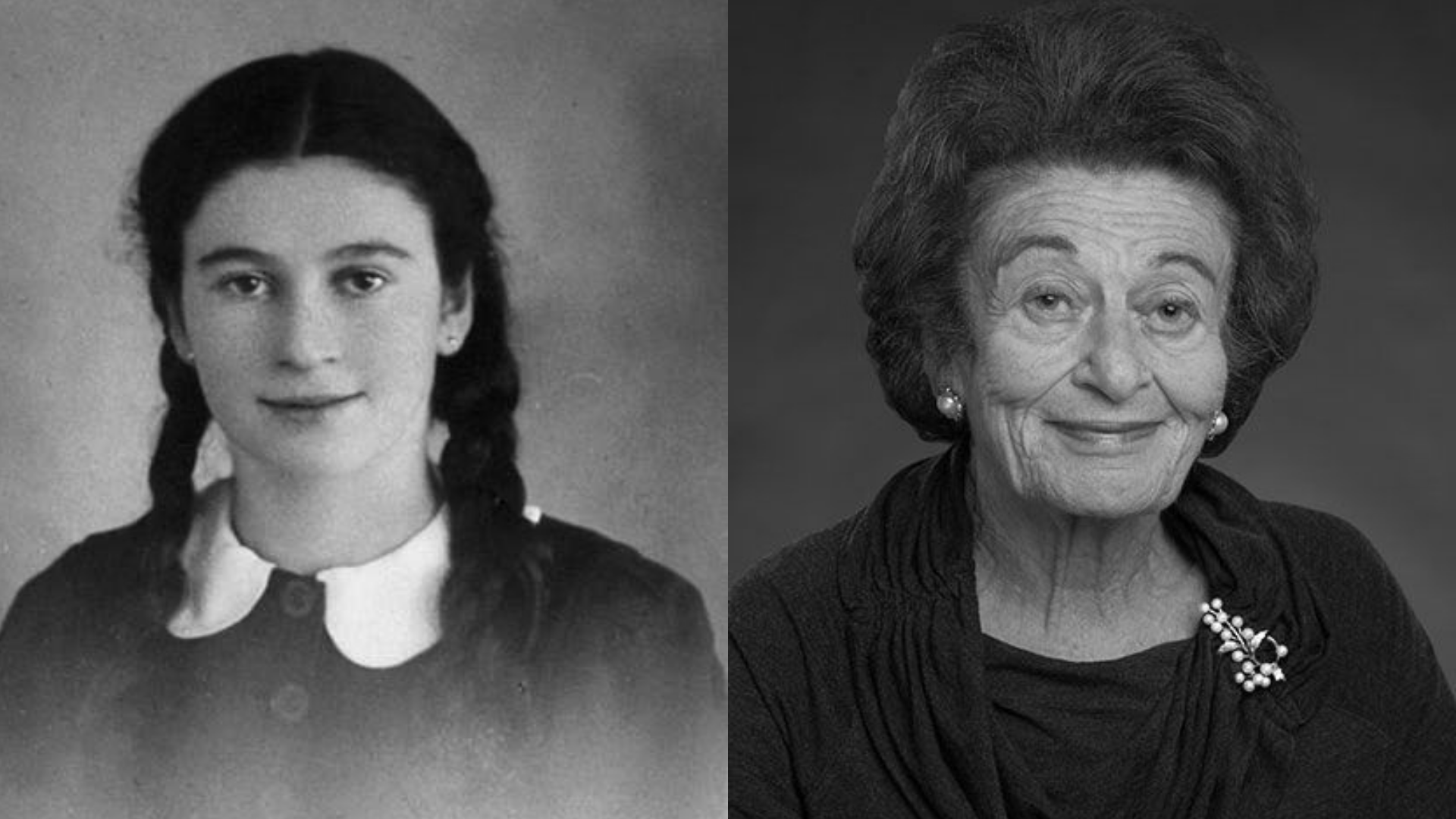
Gerda Weissmann Klein is a Holocaust survivor and advocate for peace, tolerance and gratitude. A popular public speaker and author of a best-selling memoir, Gerda speaks to audiences around the world and received the Presidential Medal of Freedom, America’s highest civilian honor.
Gerda was born in Poland in 1924 to a middle-class Jewish family. In 1939, Germany invaded Poland, and 15-year-old Gerda hid in the basement with her parents. Her older brother Arthur received a draft notice from the Germans. He went to register with the army and was never seen again.
The Gestapo discovered the Weissmanns’ hiding place and herded them into a ghetto. In 1942, they were sent to concentration camps, where Gerda’s parents both perished. Gerda survived 3 years in a camp alongside a close friend. She later wrote:
“Ilse, a childhood friend of mine, once found a raspberry in the concentration camp and carried it in her pocket all day to present to me that night on a leaf. Imagine a world in which your entire possession is one raspberry and you give it to your friend.”
Gerda and Ilse were forced onto a 350 mile death march to avoid the advancing Allied forces. 4000 women began the death march; Gerda was one of only 120 who survived. Ilse died in her arms.
In May 1945, Gerda was liberated by the US Army in Czechoslovakia. White-haired and weighing only 68 pounds, Gerda had not bathed in three years. She was 20 years old.
A young American lieutenant, Kurt Klein, held a door open for her, and she later said that was the moment she felt like a human being again. Kurt was a German-born Jew who escaped to America in 1937. His parents died at Auschwitz. Gerda and Kurt got engaged and were married in Paris in 1946.
The Kleins moved to New York and had three children. Despite the trauma, Gerda was determined to speak and write about her experiences. She published a memoir, “All But My Life” in 1957, and it became a best-seller. The book is now in its 39th edition.
She volunteered with organizations like United Jewish Appeal, and the United States Holocaust Museum. Charismatic and engaging, Gerda became a popular public speaker. She has shared her dramatic story of survival with audiences around the world.
Gerda’s message of hope and tolerance resonates with people of all ages and backgrounds.
Gerda has met with numerous world leaders, including Eleanor Roosevelt, Golda Meir, and U.S. Presidents Harry Truman, Bill Clinton, and George W. Bush. She was the keynote speaker at the UN’s first International Holocaust Remembrance Day in 2006.
With her husband, Gerda started the Gerda and Kurt Klein Foundation to promote education, tolerance, and community service. In 2008, Gerda and her granddaughter Alysa Ullman founded Citizenship Counts, a national organization that educates students on their rights and responsibilities as citizens. Citizenship Counts encourages young people to display their gratitude for living in America by helping others.
In 2011, President Obama presented Gerda Weissman Klein with the Presidential Medal of Freedom, the nation’s highest civilian award. After giving her the medal, the President quoted Gerda’s own words:
“I pray you never stand at any crossroads in your own lives, but if you do, if the darkness seems so total, if you think there is no way out, remember, never ever give up. The darker the night, the brighter the dawn, and when it gets really, really dark, this is when one sees the true brilliance of the stars.”
For being a living testament to the tenacity of the human spirit, and for her tireless efforts to educate others, we honor Gerda Weissmann Klein as this week’s Thursday Hero.
Get the best of Accidental Talmudist in your inbox: sign up for our monthly newsletter.